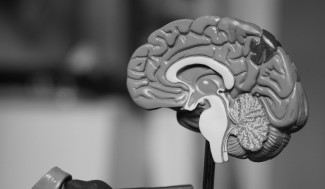Although Alzheimer's disease is not inherited in 95% of cases, nearly 75 genetic susceptibility factors - that is, factors that increase the risk to develop the disease - or protective factors - that decrease the probability to be affected - have been identified to date.
Several studies have focused on the APOE gene and have shown that people who carry the APOE-ε4 allele have a higher risk of 4 to 16 to develop the disease than non-carriers, while the APOE-ε2 allele confers protection against the disease, the APOE-ε3 allele being the most common and used as a reference. Since each of these variants is neither necessary nor sufficient, it should be noted that not all carriers of the APOE-ε4 allele develop the disease, and that conversely an individual carrying the APOE-ε2 allele may be affected. However, while it was known that the APOE gene encodes a protein with multiple functions that binds to neurons in the brain, the exact role of the apoE protein in the susceptibility and development of Alzheimer's disease remained unknown.
In an scientific paper published in the prestigious journal JAMA Neurology, Yann Le Guen, postdoctoral fellow in the FRONTLAB team “Functions and dysfunctions of frontal systems”, headed by Pr Richard Lévy at the Paris Brain Institute, in collaboration with Stanford University (USA) reveals that certain rare mutations in the APOE gene modulate the known effects of the APOE-ε2, ε3 and ε4 alleles. The APOE gene would thus be able to self-regulate its activity. Specifically, the study reveals that the R251G mutation, inherited on the same allele as APOE-ε4, counteracts the increased risk to develop the disease conferred by this allele. The scientists also identify another mutation, V236E, present in conjunction with the APOE-ε3 allele, which reduces the risk to develop Alzheimer's disease by 60%. The study, led by Yann Le Guen, involved 67000 patients, 28000 first-degree relatives and 340000 healthy controls.
These results open new perspectives towards a better understanding of the role of the APOE gene in the development of late-onset Alzheimer's disease. The discovery of these mutations is also a further step towards future therapies able to slow down or even stop Alzheimer's disease progression. Further studies are needed to understand how these mutations modify the activity of the protein and to identify the biological function affected by these several different mutations of the gene.







